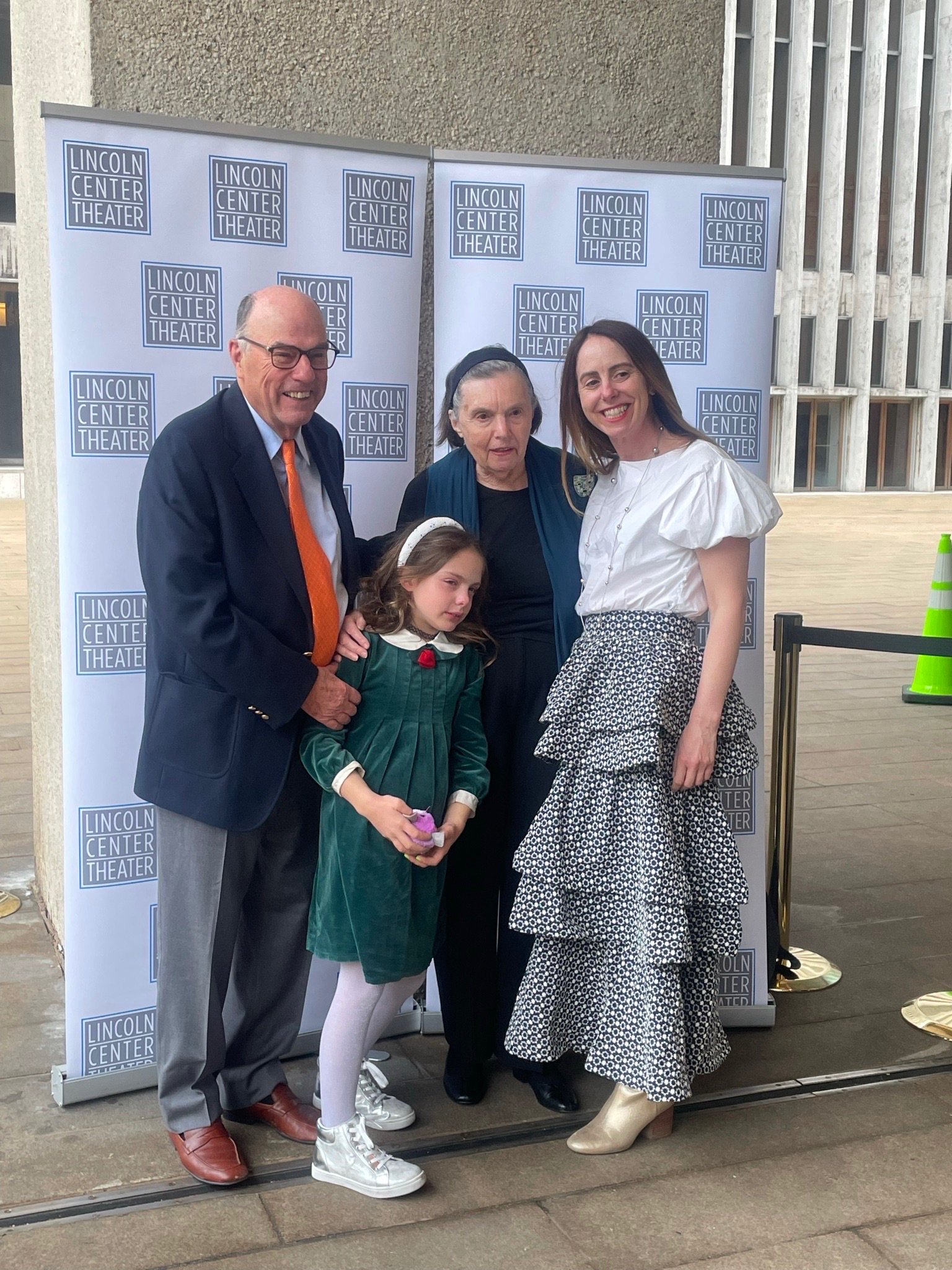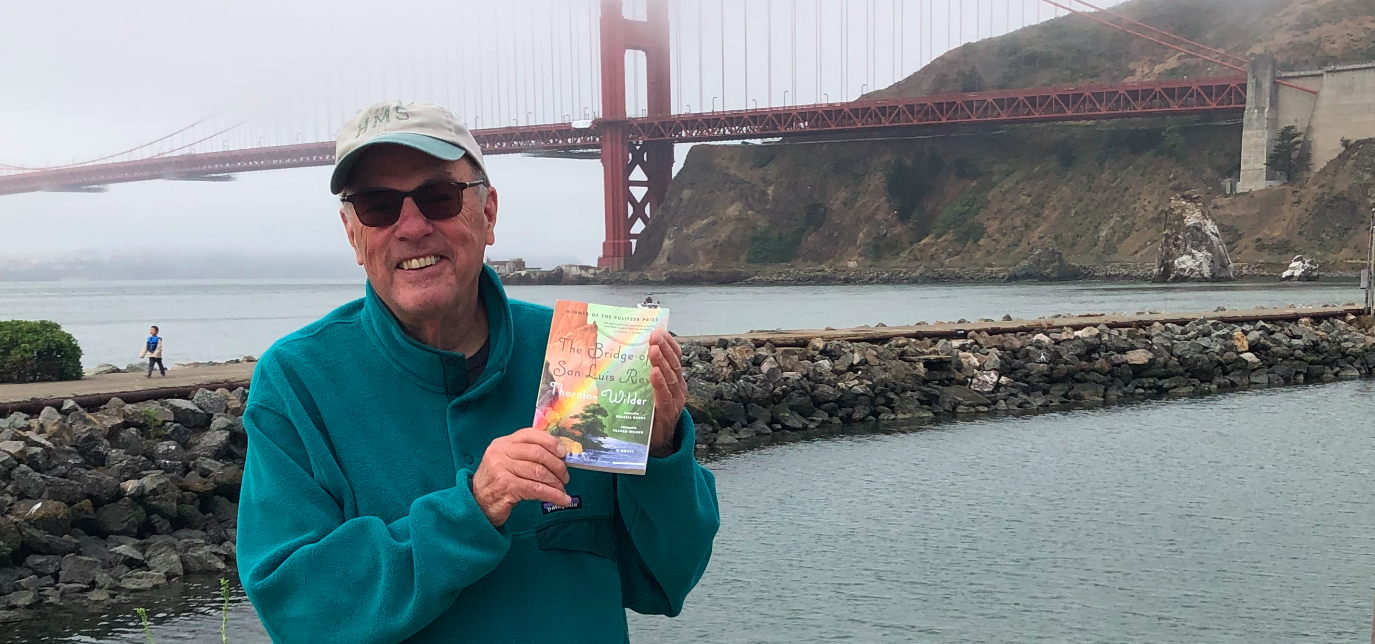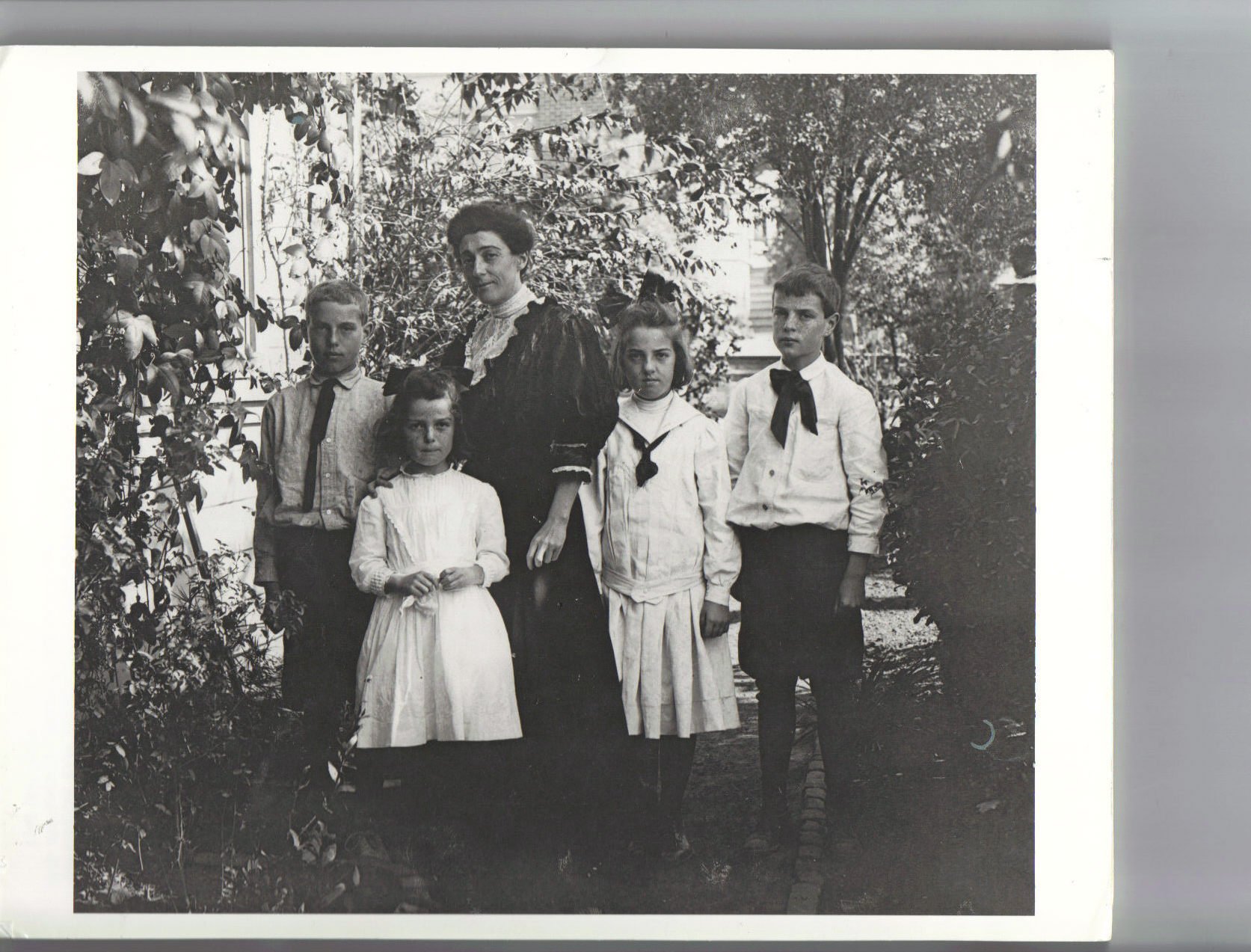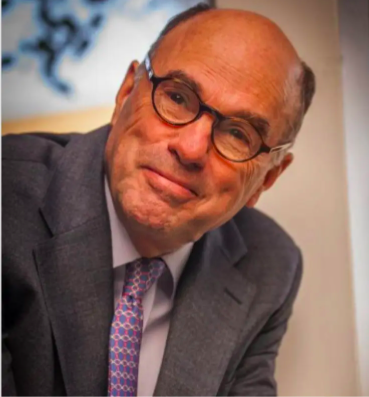Sausalito resident keeps his uncle Thornton Wilder’s legacy alive
When Tappan Wilder took the stage to play Professor Willard in a high school production of “Our Town,” fretting about pronouncing Pleistocene correctly, it was incredibly personal. They were the words of his uncle, renowned playwright and author Thornton Wilder.
For the past 27 years, the Sausalito resident happily deals with “Our Town” behind the curtain as his “Uncle Thorny’s” literary executor. But his work goes far beyond that play, finding new ways to keep his uncle’s legacy alive and fill in the gaps, as well as the work of his uncle’s four siblings.
Q What are some memories of your uncle?
A I don’t have many slides of myself with Thornton but I have a great picture of myself with him in Maine around the late 1940s when he visited. I have a letter from my uncle that I found recently. I was a college student, in a discouraged period, a sophomore slump. I didn’t think I was attractive at the time and I was complaining and he took me to the wood shed and it’s a wonderful, loving letter. I have many happy memories with him, but I have learned so much since about him, my father and all the kids through my research. I put 17 of my father’s books back into print, I am proud of that.
Q Did you consider writing yourself?
A Am I a writer of fiction? No. I studied writing with Robert Penn Warren at Yale as an undergraduate and there were only a few of us in the room. We got in by a course called Daily Themes, where you had to write every day. It was clear from about the first five minutes that there were six or seven people in that class and there was one writer and the rest of us were just wallpaper. I got over that.
Q You studied history in college. How does that impact your work?
A I love history. I love to dig and I do research every week on my uncle still, through materials I get and the extraordinary resources now in digitalized newspapers. I consider myself an American studies historian. From the moment I took over, I threw myself into archives and I found major archives that had been completely overlooked.
Q How did you become executor?
A My uncle had four siblings, the oldest was my father. My father is the only one who had children, my sister and I. When the last sibling died and various things happened legally, my mother and sister said, “Gee, here were are, representing Wilder, various copyrights are ours, what do we do? Tappy, why don’t you look into this?” And I accepted the challenge.
Q In an era of banning books, what do you think about “Our Town” being banned at one point in Soviet Berlin?
A That’s a well-known, wonderful story. “Our Town” was produced for the first time in Berlin in 1945, and eventually they shut down that because it glorified the bourgeois family and banned “The Skin of Our Teeth,” his other great play. It was opened up again I think 10 years later but Thornton got a good chuckle out of it. Some shows were done illegally. There was a period where more of his work was known in Germany than in the United States.
Q What’s a meaningful work for you?
A “A Doll’s House,” which he translated. In 1937, directed by Jed Harris, soon to direct “Our Town,” it came to New York. It was not an easy time to open a serious play like that, with the Depression, but it survived and went on to set a Broadway record, which went for 60 years. There had been talks about printing it. Thornton was in Europe writing “Our Town” and when it opened in 1938, he had another hit on Broadway that had been totally forgotten. I found the script and I worked with people who knew “A Doll’s House” and we established the script that is the closet to what my uncle wanted. Now people are performing a very important Thornton creation. It added a major work to Wilder’s record and also it’s a tribute to his skills as a translator, a feature of his life that has been completely forgotten.
Q What drives you?
A When artists are fed by Wilder and excited by what they find, that makes me feel good, because it makes Wilder not only timely but timeless. He inspires people and I think that’s wonderful.




